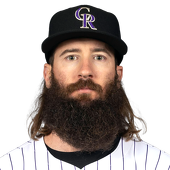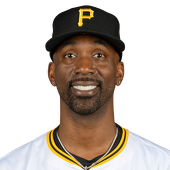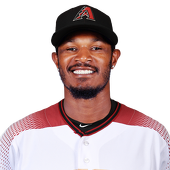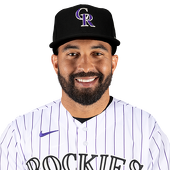Fantasy Baseball: Early outfield rankings for 2017 – CBSSports.com
Early 2016 rankings: 1B | 2B | 3B | SS | C
You can never have too many outfielders, right?
Most every league requires you to start at least three, with some requiring as many as five.
The purpose, of course, is to emulate real life. Every major-league team starts three outfielders, which naturally makes it a deeper position, and proportionally, it tends to be deeper as well. You’d rather have an additional outfielder in your lineup than an additional … second baseman, let’s say.
But in 2016, that clearly wasn’t the case. At every stop we’ve made around the infield over the past couple weeks, the story was the same: deeper than usual. And while that owes something to the rise in offense around the league this year, it’s pretty clear outfield got the short end of the stick.
To put it in perspective, the 10th-best outfielder in Head-to-Head leagues,
Bryce Harper
, would have ranked only 14th at first base, 11th at second base, 10th at third base and eighth at shortstop. And remember: That’s at a position that should in theory be three times as deep.
It doesn’t mean 2017 will be the same, of course. This sort of historical anomaly tends to correct itself over time, and it may begin with the disproportionately low number of players losing eligibility at the position (only
Wil Myers
,
Chris Davis
and
Hanley Ramirez
among must-start types). But going by what we can actually foresee, outfield is shaping up to be one of the higher-priority positions in the early rounds next year.
Top 10 outfielders for 2017:
1. Mike Trout, OF, Angels
2. Mookie Betts, OF, Red Sox
3. Kris Bryant, 3B/OF, Cubs
4. Bryce Harper, OF, Nationals
5. Charlie Blackmon, OF, Rockies
6. Trea Turner, 2B/OF, Nationals
7. George Springer, OF, Astros
8. Ryan Braun, OF, Brewers
9. A.J. Pollock, OF, Diamondbacks
10. J.D. Martinez, OF, Tigers
Between
Mike Trout
,
Mookie Betts
,
Kris Bryant
and Bryce Harper, outfielders will comprise one-third of the first round (assuming a 12-team league). Yes, we could argue whether Trout or Betts deserves to go No. 1 (though I’d think the outcome of this year’s Trout vs. Harper debate would help clear that up) or whether Bryant will be drafted to play third base or the outfield. We could debate whether Harper needs to be higher given what he accomplished while playing through (unconfirmed) shoulder and neck injuries. But I think we can all agree these four are first-rounders, in some order or another.
It gets a little murky soon after that, though, with
Charlie Blackmon
at No. 5 being the only easy call. He took another step forward in 2016, trading off some speed for power and evening out his home/away splits to make the sum of his production sort of like what we expected from
A.J. Pollock
coming into the year. So he deserves to be drafted accordingly, meaning early in the second round.
But who else should go there? Who else reasonably could? My initial look at the first two rounds included
George Springer
, but that was before I knew
Trea Turner
would somehow improve his numbers over the final two weeks of the season, giving him a rookie campaign to rival even Trout’s. Some plate discipline concerns and just the natural order of things make regression a foregone conclusion, but seeing as he was the best hitter this year on a per-game basis, late second round is late enough.
And Springer that early seemed like a stretch anyway given that he wasn’t even as good as
Albert Pujols
on a per-game basis this year. Yeah, he could bounce back as a base-stealer or continue to add power in his age-27 season, but the biggest reason he still ranks among the position’s elite is because somebody has to.
Part of me wants to rank Braun ahead of him. His per-game production was off the charts as he hit 30 homers with a .300 batting average for the first time since 2012, but the reason I have to cite per-game production is because he played in only 135 games … during a season in which he never spent a day on the DL, mind you.
He was coming off surgery to repair a herniated disc in his back, though, so it’s possible his 2017 team, especially if it ends up being a contending team, will be freer with him. Considering he also had a nagging thumb injury before the back stuff, though, better safe than sorry on Draft Day.
Obviously, no player had greater health concerns in 2016 than Pollock, but he showed in the two weeks before his ill-timed groin injury that his fractured elbow hasn’t fundamentally changed him as a player. It was a tough call between him and
J.D. Martinez
, who has quietly become one of the more reliable power hitters in the game, but he did benefit from a high BABIP this year. At 29, I don’t think he has the upside for more than third-round production.
Next 10 outfielders for 2017:
11. Nelson Cruz, OF, Mariners
12. Andrew McCutchen, OF, Pirates
13. Giancarlo Stanton, OF, Marlins
14. Jose Bautista, OF, Blue Jays
15. Yoenis Cespedes, OF, Mets
16. Starling Marte, OF, Pirates
17. Carlos Gonzalez, OF, Rockies
18. Jackie Bradley, OF, Red Sox
19. Adam Jones, OF, Orioles
20. Mark Trumbo, OF, Orioles
The potential Round 3 choices end with
Nelson Cruz
, who just turned in his third straight 40-homer season but gets a slight downgrade for his 36 years of age. I’m not predicting his downfall in 2017, but at that age, you can’t be surprised if it happens.
Still, I’d feel better about him as my top outfielder than the traitorous three behind him.
Andrew McCutchen
,
Giancarlo Stanton
and
Jose Bautista
were all top-five outfielders coming into the season and more or less Fantasy royalty given their steady track records, but all three crashed and burned in 2016.
Granted, Stanton and Bautista missed extended time with injuries, but their per-game production still didn’t measure up to their usual standards. Bautista was actually the best of the three, at least in points leagues where his walks counted for something, but his power slippage may not be something you can expect him to reverse in his age-36 season.
McCutchen did put together a .852 OPS over the final two months, so he still has a pretty good chance of bouncing back at age 30. It may not come with the stolen bases he delivered in his prime, though. Betting against a 27-year-old Stanton also seems unwise, given his transcendent power. He has always been a little one-dimensional for my liking, but he normally has no trouble measuring up to the game’s elite.
In terms of per-game production,
Yoenis Cespedes
compares more to J.D. Martinez than McCutchen, Stanton and Bautista, but as with Braun, per game may not be the best way to evaluate him. Unlike Braun, his 132 games played weren’t part of some carefully coordinated plan. He just got hurt a lot, and if he exercises his opt-out this offseason as expected, an uncertain landing spot is yet another variable that could jeopardize his high-end status.
Starling Marte
might rank as high as 12th if these rankings were intended only for Rotisserie leagues, but his greatest contributions, stolen bases and batting average, aren’t as important in other formats. That’s not to suggest he’s no good in points leagues, but coming off a year in which he took a big step back power-wise while the rest of the league took a big step forward, it’s fair to ask how he compares in terms of upside.
And we continue to ask that about
Carlos Gonzalez
, whose 2016 was once again a tale of two halves. The net result was worse than Marte on a per-game basis, even in points leagues, so ranking him behind is a pretty easy call. Plus, he’s still at risk of being traded, which may well be his undoing.
Of course, I may be painting a harsher-than-necessary picture to demonstrate why Gonzalez ranks “only” 17th, and that’s worth stressing as we arrive at 18, 19 and 20. It’s a downside-vs.-upside argument, and
Jackie Bradley
,
Adam Jones
and
Mark Trumbo
are all lacking in the latter.
Jones’ last two years have demonstrated it all too well. His home run and RBI totals aren’t so far off from the best years of his career, and yet he has struggled to perform like a top-20 option. His prior success was built on the kind of volume he has struggled to provide in the back half of his career, and besides, those home run and RBI totals don’t count for as much in today’s offensive environment.
But what about Trumbo? He led the majors in home runs, for crying out loud. Of course, he did it by hitting 13 more than his previous career high. If 35 is the more reasonable expectation for him, suddenly that .214 batting average in the second half is more worrisome.
Next 10 outfielders for 2017:
21. David Dahl, OF, Rockies
22. Gregory Polanco, OF, Pirates
23. Ian Desmond, OF, Rangers
24. Christian Yelich, OF, Marlins
25. Matt Kemp, OF, Braves
26. Khris Davis, OF, Athletics
27. Jose Ramirez, 3B/OF, Indians
28. Justin Upton, OF, Tigers
29. Michael Brantley, OF, Indians
30. Stephen Piscotty, OF, Cardinals
Of course, ranking Trumbo in the top 20 is still an endorsement of sorts. The big drop-off in the outfield doesn’t come until this third group of 10, none of whom you can draft without a sneaking position you’ll be looking for an upgrade down the line.
OK, so that’s more the case for shallower three-outfielder leagues, but you get the idea: These players probably won’t be competing for top-10 status at the position. The ones with the best chance are the first two,
David Dahl
and
Gregory Polanco
, and though my Twitter followers were split on the decision, I have more hope for Dahl.
Another 2017 dilemma for you. Who do you prefer?
— Scott White (@CBSScottWhite) September 29, 2016
First of all, he plays at the physics-manipulating wonder that is Coors Field, which gives him a higher margin for error and a lower threshold to meet in terms of ability. He seems to have plenty of said ability, though, profiling as a five-category threat during his minor-league career, and his first taste of the majors was a rousing success apart from that week-long stretch in mid-September when both he and manager Walt Weiss thought the workload was catching up to him.
Polanco actually performed like a top-10 outfielder in the first half, but with his second-half decline came a loss of playing time that makes giving the benefit of the doubt even harder to do. He was pretty banged up in the second half, though, and some of the supporting stats like BABIP and line-drive rate support the first-half version more. So there’s a bit of a fool-me-twice-shame-on-me element to this ranking.
Given where the baseball world stood on
Ian Desmond
at the start of 2016, I don’t think anyone can be too surprised by his .237 batting average and .630 OPS in the second half, and
Matt Kemp
and
Khris Davis
are just slightly lesser versions of Trumbo, their lack of plate discipline pinning all of their value to their home run totals.
In between, I’ve ranked
Christian Yelich
, who may still have upside at age 24. But judging by some of his batted-ball stats, I’m not completely convinced the 21 homers he hit this year are the new standard for him, which is particularly troubling in an environment where everybody who’s anybody hits 20 homers. I think this tweet sums it up pretty well:
Even with the 21 homers, he was worse than Kemp in Head-to-Head points per game this year, which isn’t even Kemp’s best format. So yeah, ranking him just ahead of Kemp is about as much as I can value Yelich’s upside.
Fair to say this group has some warts, then. I haven’t even mentioned
Jose Ramirez
‘s reduction in eligibility from four positions to two or
Justin Upton
‘s poor standing despite a second-half surge that led to him equaling a career high in home runs (31 just don’t go as far as they used to). But the name that probably stands out the most here is
Michael Brantley
, who didn’t just have a lost season but the worst kind of lost season — one that keeps us on the hook for weeks at a time before putting us out of our misery in June. And clearly, some Fantasy owners are still holding it against him:
All right, you’re drafting today. Who do you take?
— Scott White (@CBSScottWhite) September 29, 2016
The reports of him possibly missing some time at the start of 2017 obviously raise some concern, and if it becomes more than just “possibly,” I’ll have to amend my thinking. But in theory, his latest shoulder surgery should have corrected the problem, which presents us with a unique opportunity to draft an elite-level player at a steep discount. Yes, 29th at the position would still qualify as such.
Whether Brantley can clear that health hurdle will be more telegraphed as the season approaches than whether
Miguel Sano
or, say,
Billy Hamilton
can clear the development hurdle. Others who might compete for Brantley’s spot in the top 30 include
Ben Zobrist
and
Hunter Pence
, who have shown signs of their age catching up to them the past couple years, and
Lorenzo Cain
. Who knows what to make of him, right?








